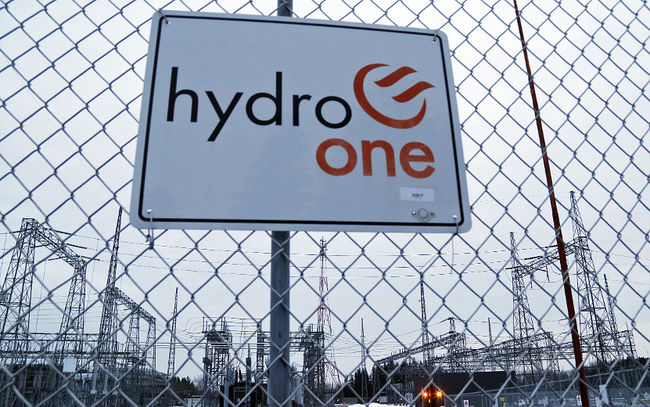Government spent $6.2 million on Hydro One sale legal fees

When Hydro One filed its final long form prospectus on October 28, 2015, I noted that the expenses of the offering were estimated to be $12.5 million. These expenses include things like legal fees, expert reports, accounting fees and audits, TSX listing fees and other regulatory fees.
As a lawyer who practiced on Bay Street, I’m always curious about the legal costs associated with large transactions, and the Hydro One IPO is certainly large. So naturally, I filed a request under Freedom of Information legislation.
The documents we received back indicate that to date, the government has been billed $6.2 million in legal fees associated with the IPO. The firms doing the legal work are top tier firms in Toronto, and are getting a big payday on this work.
So far, only one of the four rounds of share sales has been completed. While much of the legal work is done, the costs will continue to climb in the subsequent rounds of sales.
The question is what is reasonable for fees for this kind of transaction. Is $6.2 million a lot, or a little, to spend on legal fees for the Hydro One IPO?
The Hydro One partial privatization is large. Indeed, it is one of the largest IPO’s in Canada in 15 years. The government plans to raise $9 billion by selling 60 per cent of the company. But only part of that $9 billion will come from the sale of shares. The government will also net $1 billion from a special dividend and payments-in-lieu of taxes, and $2.2 billion is from a deferred tax asset benefit. That leaves approximately $5.8 billion to be raised from selling shares. Still significant.
For comparison’s sake, I looked at some other IPOs. The next largest was Encana’s $1.46 billion offering of shares in its PrarieSky Royalty Ltd. unit in 2014. That IPO had estimated expenses of $5 million. The Encana offering was smaller, but the expenses actually reflected a larger portion of the value of the shares.
Unfortunately, we don’t know what portion of Encana’s expenses were legal fees. Canadian securities laws do not require a breakdown of the expenses into legal fees versus other expenses in the prospectus. This makes it hard to compare legal costs of different IPOs. But PriceWaterhouse Coopers’ guide to going public in Canada indicated that on a large offering, legal fees can range between $500,000 to $1 million plus. Additionally, in the United States, where lawyers’ billable rates are much are higher, and deals are bigger, the average legal fees in 2014 were USD$1.2 million.
But it should also be noted that while the Hydro One IPO is very large, the size of the offering does not necessarily correlate with legal fees thE same way it does with underwriting or investment banking fees. While those fees are determined as a portion of the size of the offering, lawyers’ fees are based on an hourly rate. The larger the transaction, the more time it will take the lawyers to complete the prospectus, but with diminishing returns. Large parts of the legal costs will be the same for large or small IPOs. And other costs may actually be lower for a company like Hydro One, for example, the costs of getting the company’s books in order. Something that would presumably be mostly already complete with a company like this.
For $6.2 million in fees, the lawyers would have spent a lot of time on this IPO.
I am not making any suggestions about the billing practices of the firms that did the work on the Hydro One offering. When legal costs are high, it is often the client rather than the lawyers that drive up the bills. For example, by demanding lengthy negotiations on small issues, or unnecessary re-drafts. Governments can also be far less price sensitive, and may be more willing to quibble over unnecessary changes to documents that can lead to enormous legal bills.
But as a total cost, $6.2 million is a lot of taxpayer money to spend on legal fees for an IPO that is already politically sensitive. This news certainly won’t help the government to market the already unpopular sale.